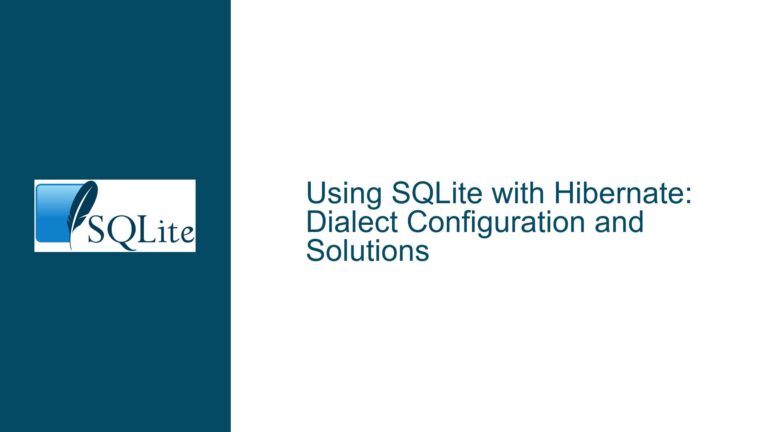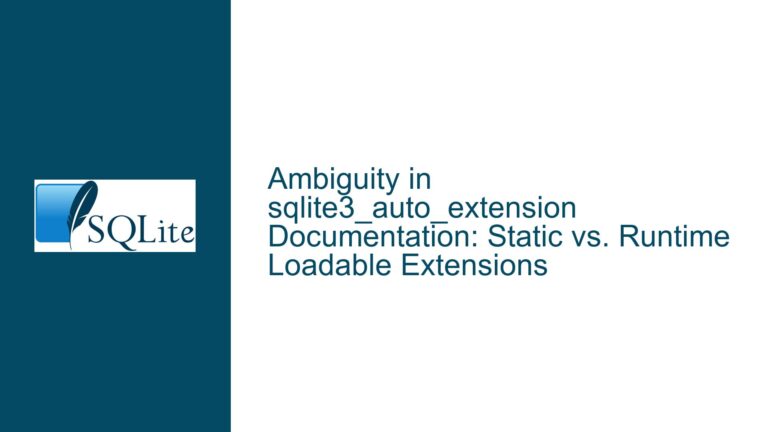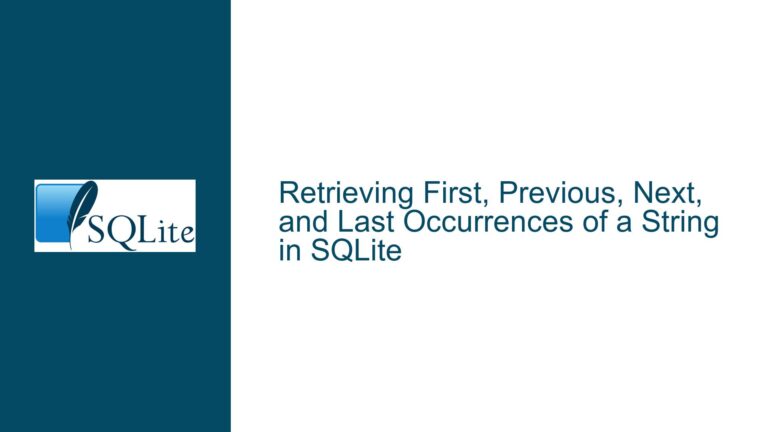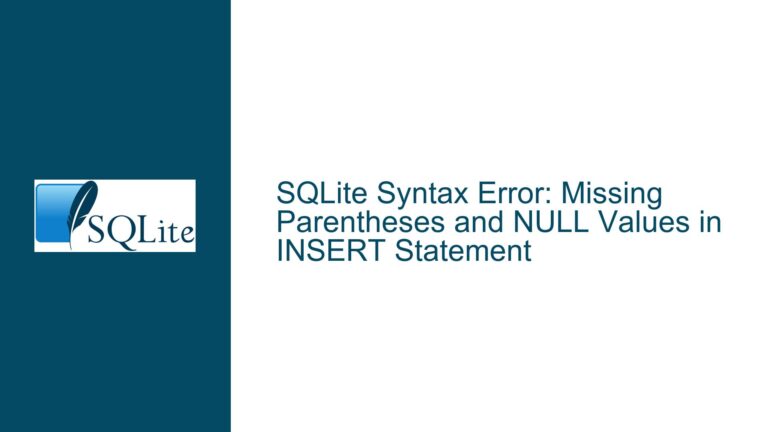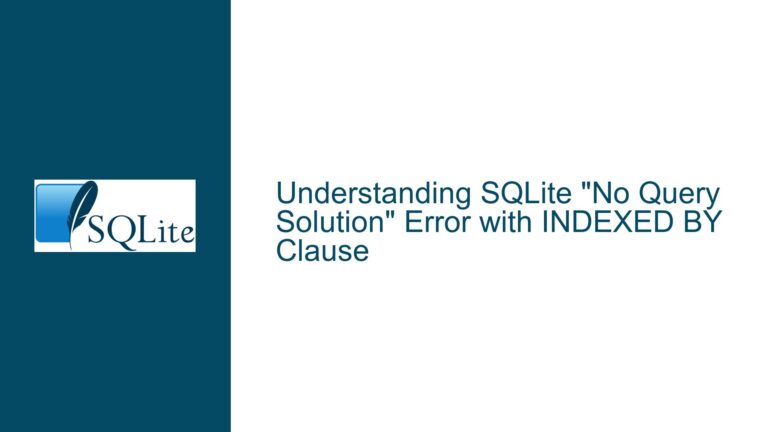Using SQLite with Hibernate: Dialect Configuration and Solutions
Lack of Official Hibernate Dialect for SQLite When working with Hibernate, a popular Object-Relational Mapping (ORM) framework for Java, developers often rely on database-specific dialects to bridge the gap between Hibernate’s generic SQL generation and the unique features of the underlying database. SQLite, being a lightweight, serverless, and embedded database, is a common choice for…
